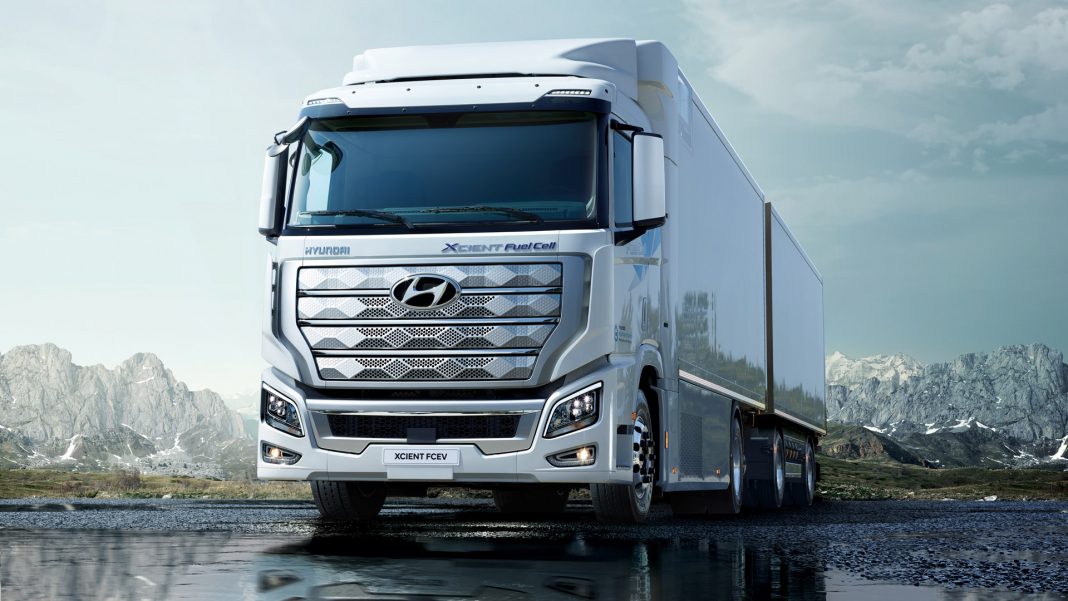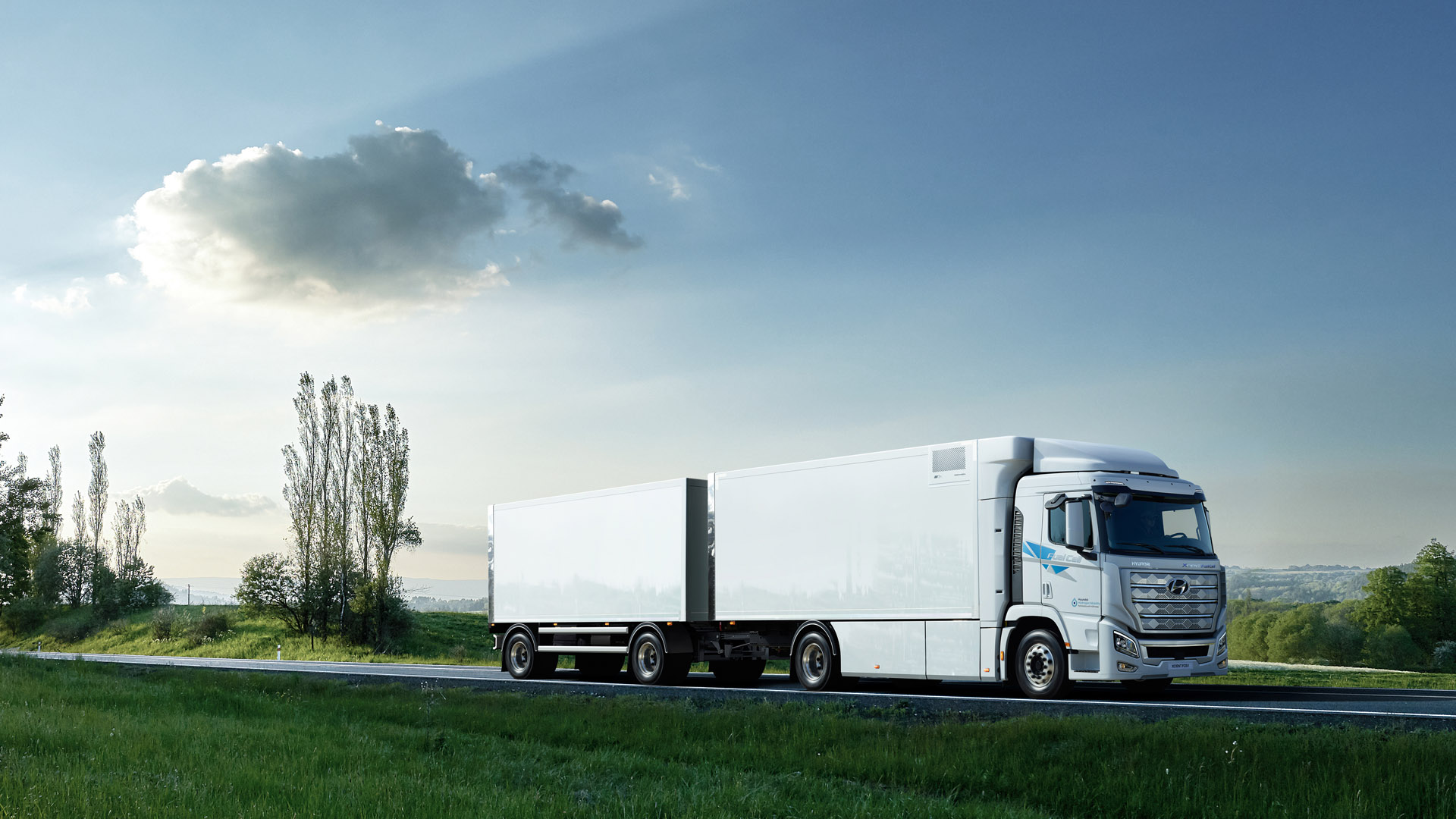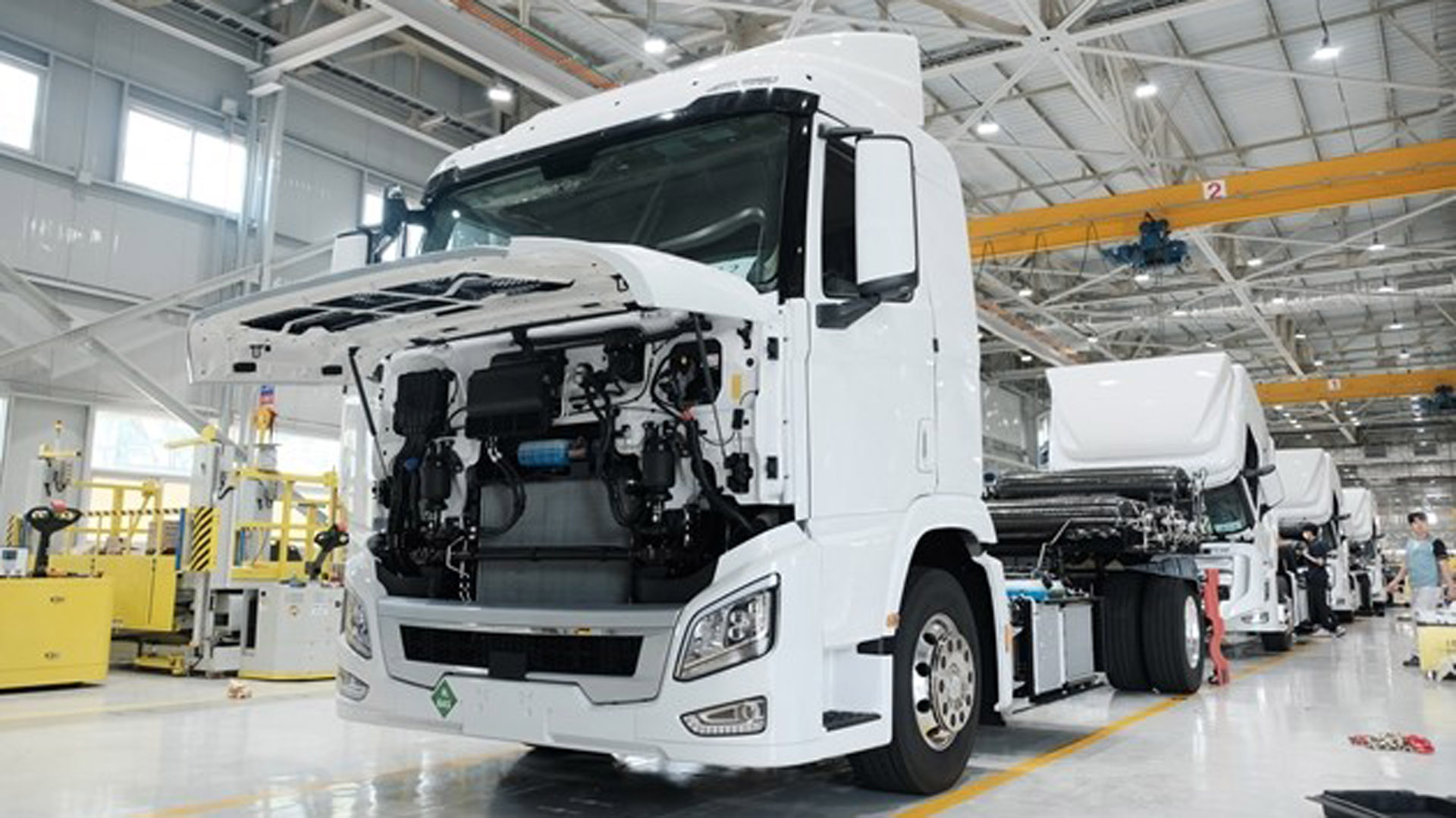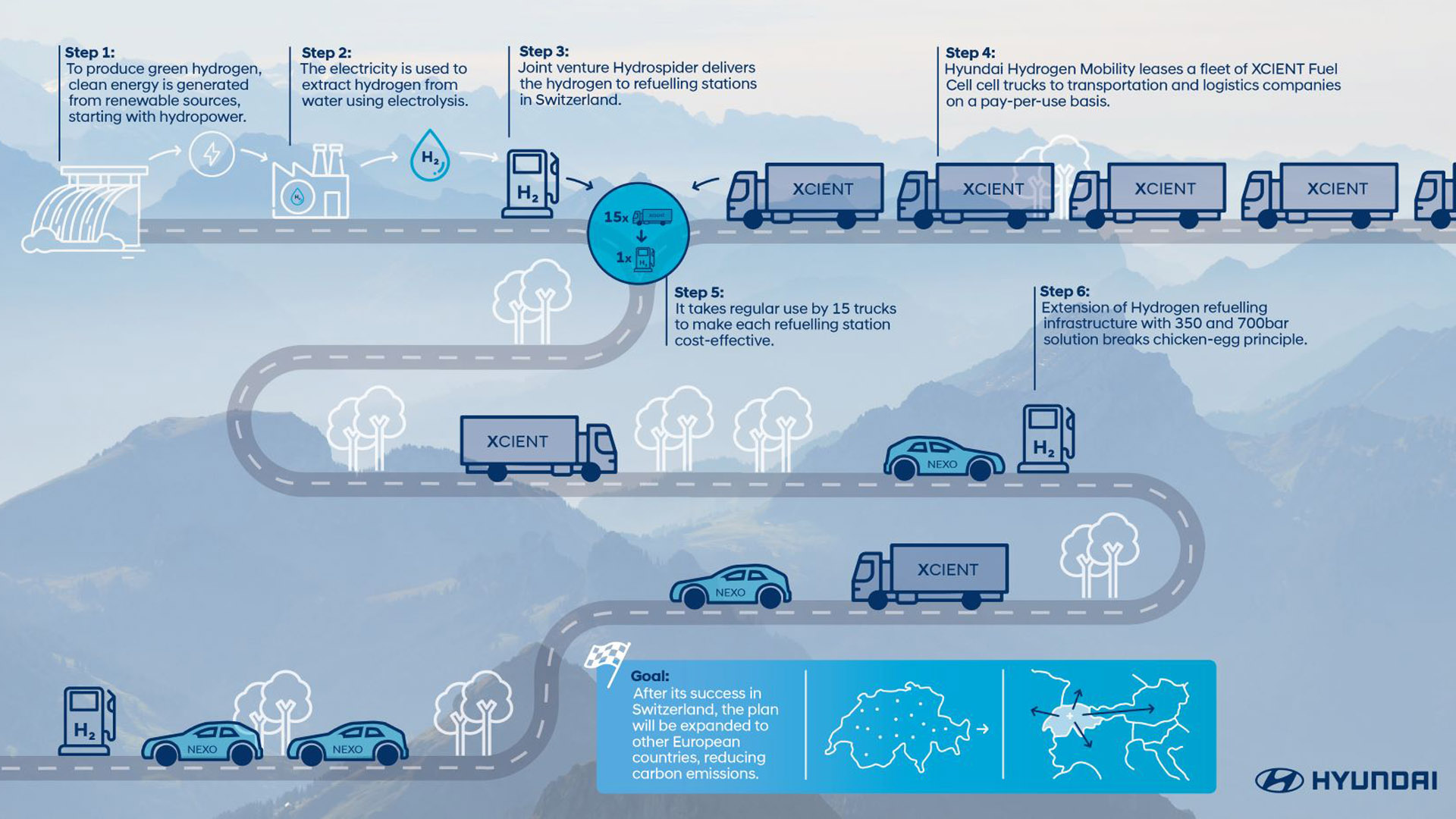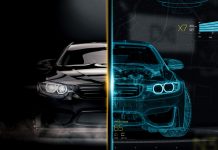Hyundai has today announced that it has shipped its first ten XCIENT Fuel Cells, which are to be used in heavy goods vehicles (HGVs) in Switzerland. The South Korean manufacturer aims to deliver 50 XCIENT Fuel Cells this year and is looking to roll out over 1,600 fuel cell-powered trucks by 2025.
“XCIENT Fuel Cell is a present-day reality, not as a mere future drawing board project. By putting this ground-breaking vehicle on the road now, Hyundai marks a significant milestone in the history of commercial vehicles and the development of hydrogen society,” said In Cheol Lee, Executive Vice President and Head of Commercial Vehicle Division at Hyundai Motor.
“Building a comprehensive hydrogen ecosystem, where critical transportation needs are met by vehicles like XCIENT Fuel Cell, will lead to a paradigm shift that removes automobile emissions from the environmental equation.”
Buy a car phone mount on Amazon (Affiliate)
Hyundai’s XCIENT is powered by a 190-kW hydrogen fuel cell system with dual 95-kW fuel cell stacks. Seven large hydrogen tanks offer a combined storage capacity of around 32.09kg of hydrogen. The dual-mounted fuel cell system also provides enough energy to drive the HGVs through mountainous terrain.
As such, the hydrogen-powered trucks last 249 miles (400 km) on a single tank; it’ll take approximately 8-20 minutes to refuel to full. This makes it perfect for commercial fleet companies who are looking to boost their eco credentials and further, not lose time at a refuelling station.
“Having introduced the world’s first mass-produced fuel-cell electric passenger vehicle, the ix35, and the second-generation fuel cell electric vehicle, the NEXO, Hyundai is now leveraging decades of experience, world-leading fuel-cell technology, and mass-production capability to advance hydrogen in the commercial vehicle sector with the XCIENT Fuel Cell,” added In Cheol Lee.
Read next: Toyota and Hino join forces to develop a new hydrogen fuel cell truck
In addition to the XCIENT Fuel Cell, Hyundai is developing a long-distance tractor unit capable of travelling 621 miles (1,000 km) on a single charge. It is said to come equipped with an enhanced fuel cell system; it’ll be aimed at penetrating the North America and European markets.
All of this has been made possible after the South Korean automaker formed Hyundai Hydrogen Mobility (HHM), a joint venture with Swiss company H2 Energy. The Swiss company will then look to lease the trucks to commercial truck operators on a pay-per-use basis – there’s no initial capital expenditure for commercial fleet customers.
Hyundai chose Switzerland as the country’s LSVA road tax on commercial vehicles doesn’t apply for zero-emission trucks. This almost equalises the hauling costs per kilometre when compared to a regular diesel-led truck.
Read next: Can we use sport as a platform for climate change?
Furthermore, the country also holds the highest shares of hydropower in the world, which means producing 100% green hydrogen will be easy to accomplish – other countries don’t have fully renewable means of producing clean hydrogen.
As Hyundai looks to the future, zero-emissions mobility will play a significant role in the company’s strategy. In addition to the XCIENT Fuel Cell trucks, the automaker is also the manufacturer of NEXO, its second-generation hydrogen-powered SUV. By 2025, the company aims to sell 670,000 electric vehicles annually, including 110,000 FCEVs.
What do you think the future holds for hydrogen-powered vehicles? Let us know in the comments section below, or via social media: we’re on Facebook, Twitter, Instagram and YouTube.

